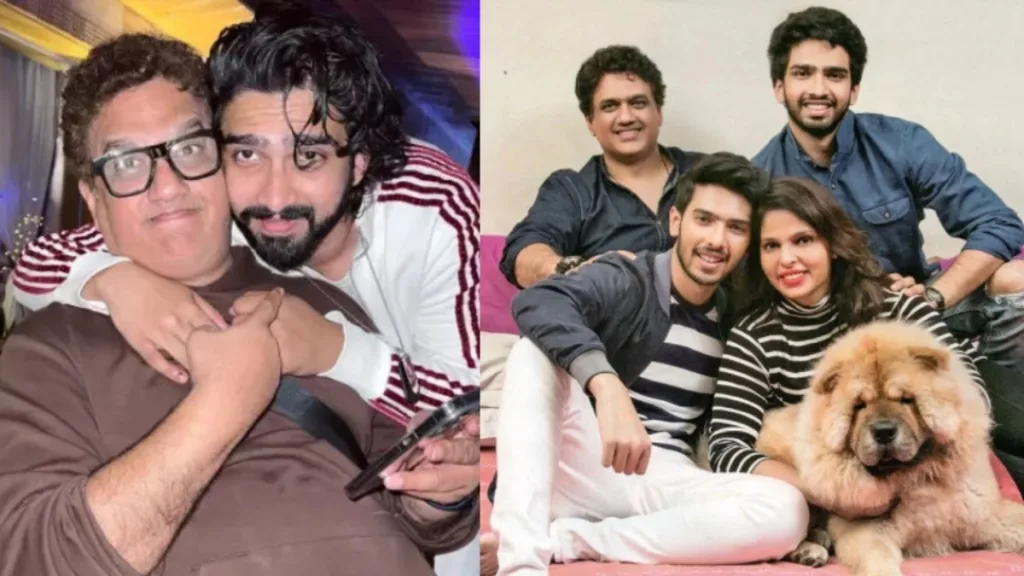In the high-voltage atmosphere of Bigg Boss 19, where musicians, actors and influencers live under the constant glare of cameras and public scrutiny, veteran composer-producer Daboo Malik has raised a new concern: the online targeting of his family—particularly himself—over his son Amaal Mallik’s gameplay and behaviour on the show. The composer told a media outlet that what began as commentary on Amaal’s performance has morphed into something more personal: doubts cast on his parenting, his family upbringing and his integrity as a father.
Daboo Malik says he has been “doubted”
In the interview, Malik didn’t mince words. He said, “I have been targeted for my upbringing. As a father, I am being doubted, wrong things are being told to me, and I am listening to everything. You cannot stop anyone.” The comments reflect a growing tension between life inside the Bigg Boss house and the fallout in the real world—especially for contestants’ families.
Malik’s frustration stems from a perception that some of the criticism aimed at Amaal goes beyond performance or strategy and enters the realm of personal attack. “What is hurting most is the tirade of negativity that happens. I never thought of ourselves as stars. We are normal musicians. But suddenly, the explosion that has happened shows that the power of Bigg Boss is too big… I have never been exposed to this kind of language that people have been using,” he elaborated. The composer said the abuse isn’t just focused on Amaal’s actions inside the house—it’s his family’s identity being questioned.
House drama, outside consequences
Amaal Mallik’s stint on Bigg Boss 19 has been filled with controversy, strong opinions, emotional reveals and allegiance conflicts. But it is the blow-back that has reached beyond the house walls that has brought his father into the conversation. According to Daboo, the social-media commentary – ranging from harsh trolling to borderline abuse – targeted him as much as his son.
He detailed how the psychological pressure of the show environment can trigger unfiltered behaviour from contestants: “A psychological bubble gets created around you in the house, you start behaving in a particular way, and maybe you don’t have any control,” he said. The implication: what happens inside is amplified outside, but the full context often gets lost.
What does this signal about reality TV and families
In many ways, Daboo Malik’s words highlight a broader truth about reality television in India: the narrative doesn’t stop at the contestant—it extends to their family, reputation and legacy. Viewers may feel entitled to judge contestants’ personalities, motives and pasts, and the consequences can hit home. Malik’s complaint that “people are questioning my upbringing” casts a spotlight on the collateral damage of public exposure.
Reality-show veterans and parents of past contestants will recognise the pattern: a moment of on-air drama becomes off-air hate. Once the daily broadcast ends, viewers take to social media where the contestant’s behaviour is scrutinised, often without nuance. In Malik’s case, the difference is that the parents are absorbing this backlash, too.
Is the house held accountable?
Daboo’s intervention raises questions about the responsibility the show has towards contestants and their loved ones. Should the narrative stop at the house? Should the producers moderate or buffer the negative impact on participant families? While Bigg Boss thrives on conflict, the ripple effects can damage real-world relationships and reputations.
Malik’s call to understanding also shakes up how we perceive contestants—and their families. Often, we judge what we see, but forget there is depth behind the images: childhood, career setbacks, family dynamics, and a human being beyond the camera’s lens. The remarks underscore that while Amaal may be on television, his father bears the scrutiny.
Daboo Malik pointed to the weight of legacy: his musical heritage, his son’s ambition, their shared hope for success. His words suggest the targeting isn’t merely about Amaal’s performance—it’s about the expectations placed upon him, and by extension, upon the family.
He said he never expected to be called out for his lineage, his parenting style or his values. Yet, as the public eyes roll in, he finds himself defending not just a contestant but his identity as a father. In that sense, the house becomes a mirror reflecting wider cultural judgments—on class, family background and perceived entitlement.
Moving forward
Daboo Malik’s comments ask the audience to remember that contestants are more than their televised persona. They carry histories, familial bonds and personal vulnerabilities that viewers rarely see. For Amaal, the journey inside Bigg Boss will continue— but for his family, the scrutiny continues outside.
Whether this brings about new safeguards—from showrunners or broadcasters—remains to be seen. For now, Malik has voiced the emotional toll: “At this age, I cannot hear abuses like these.” In the world of prime-time drama and celebrity culture, those words should invite pause.
In sum, the issue isn’t just about a son in a reality-show house—it’s about a family under public fire. And in that exposure, the question circles back to all of us: when we judge the contestant, do we remember the human being behind the screen?

